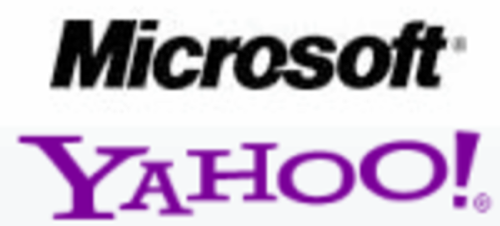Today, a number of rumors about a potential partnership between Yahoo and Microsoft surfaced once again. Almost a year ago, after months of back and forth between Microsoft and Yahoo, we thought any deal between the two companies was finally off the table, but rumors about potential deals continued to bubble up regularly in the last few months. Now, some news outletsarereporting that the two companies may be close to signing a partnership agreement that would allow them to collaborate on search technology and advertising. Bloomberg’s Dina Bass, citing anonymous sources, reports that a deal could be finalized within the next two weeks.

None of these sources, however, seem to be very clear about the exact details of the deal. With Bing, Microsoft has developed a product that can compete head-to-head with Google’s search engine. Yet, even though Bing is slowly gaining ground and now has more than 10% of the search market according to some sources, overcoming Google’s inertia would be a very difficult challenge for any competitor, and a partnership with Yahoo could double Bing’s market share over night. For Yahoo, there is also an incentive to make a deal now, as Bing is likely to steal at least some market share away from Yahoo.
$3 Billion?
Kara Swisher reports that on the financial side of things, it looks like the latest deal would include Microsoft paying several billion dollars to Yahoo upfront to take over its search advertising business. If this deal goes through, Swisher reports, Yahoo would also take over Microsoft’s display ads business. Concrete numbers are still hard to come by, but 27/7 Wall Street reports that Yahoo would get $3 billion upfront and “will get 11% of the revenue that its searches provide after traffic acquisition costs in each of the first two years. In the third year, that figure would go to 90%.”
As always, we will keep a close eye on this story as it unfolds. For now, there are still rumors, but they seem to be quite substantial, and a deal between Microsoft and Yahoo (though not a merger of the two companies) would definitely make sense at this point.

















